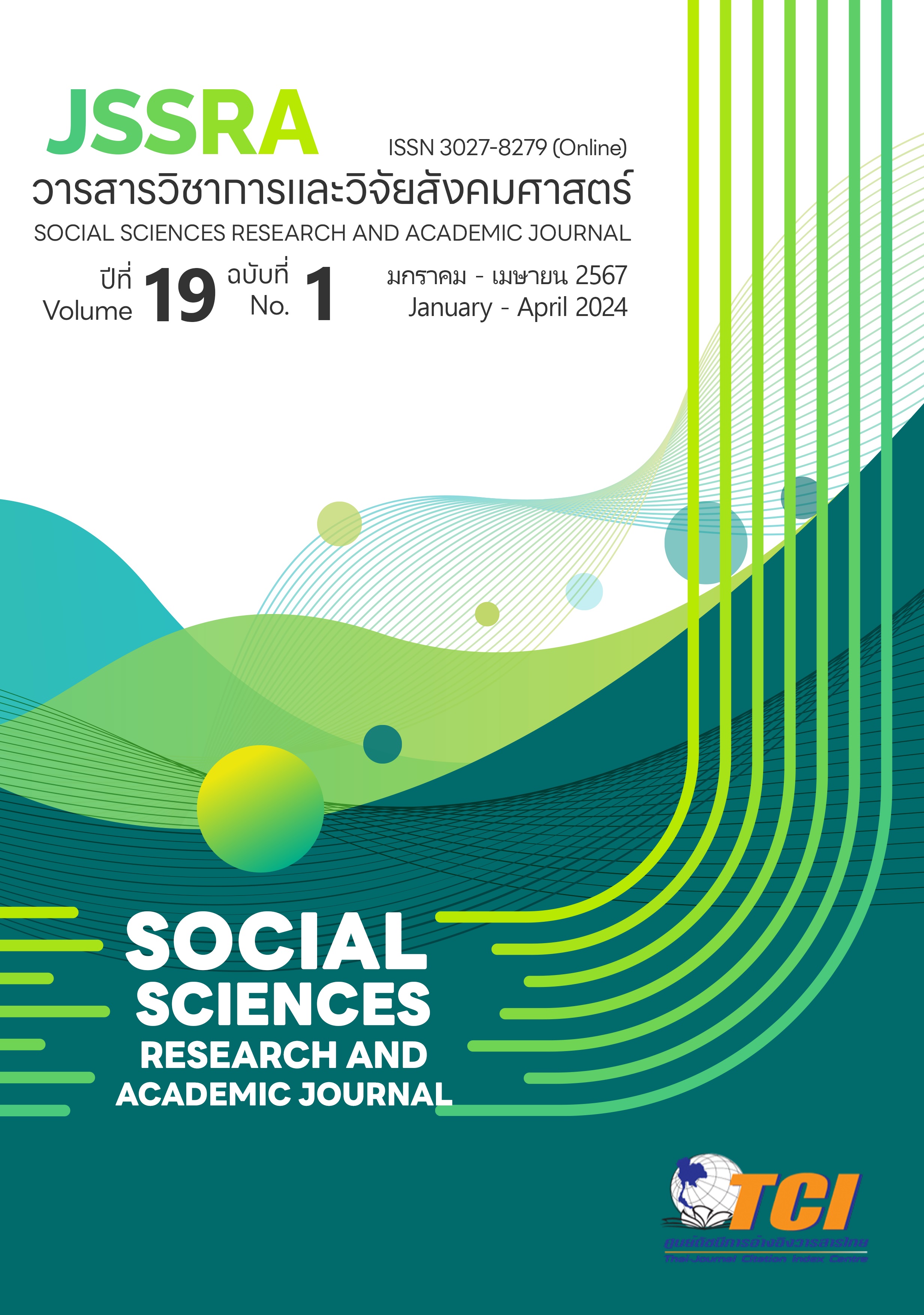The Guidelines on Inquiry Section Development Among Inquiry Officers in the Digital Age
Main Article Content
Abstract
The objectives of this academic article were to analyze factors affecting the performance of inquiry officers in the digital age, and propose guidelines for developing the inquiry work of police station level inquiry officers in the digital age. It was found that the factors affecting the performance of inquiry officers in the digital age were as follows: (1) A shortage of inquiry officers with the increasing number of cases and more complicated pattern, (2) Lack of skills and knowledge in criminal inquiry according to the principles of forensic science and technological limitations and (3) The budget to support inquiry work. For guidelines for developing inquiry work in the digital age should start with the victim, report a complaint to the inquiry officers, consider adopting guidelines for inquiry each type of case, apply in inquiry officers gather evidence, receive report results from the Police Forensics Division, receive information from the police information system, submit a request to defer the detention case, request a search warrant, an arrest warrant, summarize the investigation files and give opinions to the police station chief, supervisor inspects and considers. After that, the inquiry file and opinions will be presented to the prosecutor and submit the case to the court. Both coordinate with agencies that may be involved with every step being an online system linking information through a central database. Store data was together into a single system and import data into the system immediately. It is information that is safe and transparent and can be verified and used through officers' computers and mobile phones.
Article Details
References
Charoenbun, K. (2020). Handbook for Investigators According to the New Law, Volume 2. Nonthaburi: 21 Century. (In Thai).
Khamsamart, S., Kuljittri, S., and Chanthapala, K. (2020). Approaches to Educational Administration in the Era of Digital Disruption. Journal of Modern Learning Development, 5(3), pp.245 -259. (In Thai).
Khundilkanathawasa, S., Yoddamnoen, C., and Nakpuang, E. (2020). Forms and Standards for Investigating Children and Youth in the Investigative Officer Level for Accuracy, Speed, and Fairness. Chiang Mai Rajabhat Research Journal, 21(1), 143-155. (In Thai).
Kongsuea, P. (2023). Investigation and arrest in the Digital Age of the Investigation Department, Taling Chan Police Station. Superintendent Course, Class 142, Police College. (In Thai).
Pimphanchaiyaboon, K. (2023). Investigation and Investigation of Technological Crimes, Link Cases, Sucking Money from Accounts. Superintendent Course, Class 142, Police College. (In Thai).
Power Rate Division. Human RTP. (2023, February). Status of Police Officers Have the Power and Responsibility to Inquiry The 1ST [Paper presentation]. Bangkok: Royal Thai Police. (In Thai).
Puethongkam, S., and Ruangwiwatroj, N. (2023). Practical Investigation. (p. 4). Bangkok: Nitithanasan Publishing House. (In Thai).
Silpsuk, P. (2023). Technology Crime Investigation and Collection of Electronic Evidence That Affects the Trial. Superintendent Course, Class 142, Police College. (In Thai).
Sonploy, W. (2023). Reasons Why People Are Victims. and Problems and Obstacles in Making the Case Tricking Someone Into Loving You and Then Transferring Money or to Invest (Romance Scam). Superintendent Course, Class 142, Police College. (In Thai).
Tharathonpitak, R., and Sinloima, P. (2020). Development of Investigative Web Applications for Analysis. Information on the Geographic Address of the Suspect or Defendant According to the Court Arrest Warrant. Engineering Journal Rajamangala University of Technology Thanyaburi. 18(2), 11-21. (In Thai).


